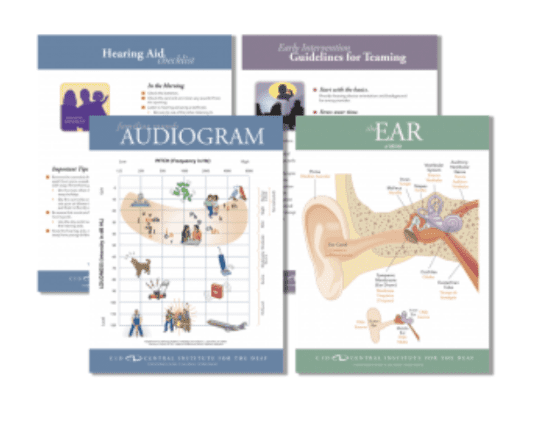October is audiology awareness month! In celebration, here are five games that promote auditory development. These games are easy to play as a family or in a group auditory training session and don’t require any materials. Each game supports a different auditory skill.
Marco Polo – To play, set boundaries in a designated area. One child is Marco Polo and keeps her eyes closed for the duration of her turn. While searching for players, Marco Polo shouts, “Marco” and the others respond, “Polo.” Marco Polo then tries to locate players based on where the responses come from. Consider setting a timer in case Marco Polo doesn’t catch anyone. Play in the pool, outside, or the gym.
- Auditory Skill: localization
I Went to the Store – One person starts with, “I went to the store and bought an (something that begins with A) apple.” The next person states the entire phrase and adds on with B. For example, “I went to the store and bought an apple and a banana.” Continue going through the alphabet and see if you can get all the way to Z. This game is tricky; it is OK to give support when needed.
- Auditory Skill: auditory memory
Telephone – Stand in line and have the first player whisper a message in the next player’s ear. Continue whispering the message down the line. The last person announces what they heard, then the first person says the original phrase. Of course, it is funny to hear how mixed up the message gets, but comprehending a whispered message is an important skill to work on.
- Auditory Skill: understanding quiet speech
Simon Says – An old favorite! Simon gives an instruction for the others to carry out. If he doesn’t say, “Simon says,” before the instruction, it shouldn’t be completed. If someone doesn’t listen closely and does the action, she is out. Multi-step directions can be incorporated for higher level listening. For example, “Simon says pat your head twice, turn around, then hop three times.”
- Auditory Skill: following verbal directions
Odd Man Out – Say a sentence that includes four nouns, one of which doesn’t belong. For example, “I love going to the zoo and seeing the zebras, monkeys, racecars and giraffes.” See if the child can identify the odd man out and explain why it doesn’t fit in the category.
- Auditory Skill: auditory comprehension
Check out our previous blog post where we explained some great games that encourage expressive language skills!

Abby Meister, MSDE, CED is the content coordinator of the Emerson Center for Professional Development at CID – Central Institute for the Deaf. She has been a teacher of the deaf for over 10 years, primarily working with children ages 2-5. She has presented at professional conferences with content focusing on early intervention and listening and spoken language strategies for children who are deaf or hard of hearing. She received her master’s degree in deaf education through the Program in Audiology and Communication Sciences (PACS) at Washington University.












